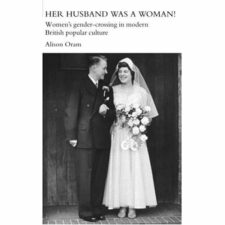In November 1938, a commission visited Jamaica, made up amongst other of Dame Rachel Crowdy and Dr Mary Blacklock, to assess the reasons behind labour riots that had plagued the island from April till June. Mary Morris-Knibb testified on behalf of the Jamaica Progressive League, an organisation founded in New York by Jamaican ex-pats which favoured self-government and set up branches in Jamaica in the aftermath of the riots. Knibb, who ran a private preparatory school, told the commission that the Child Welfare Association (CWA), the main voluntary child welfare provider, discriminated against black women. Knibb and several other middle-class black women had offered the CWA its help to make it more effective by going ‘into our people’s homes’ but had been told by its white executive that they would first have to form an auxiliary and then affiliate with the Women’s Social Service Club (WSSC). They were unable to do so because they could not raise the funds for the WSSC’s membership. In response to their exclusion from the CWA, Knibb along with the poet, playwright and broadcaster Una Marson and educator Amy Bailey set up a separate child welfare organisation – Save the Children Fund (SCF) – which received financial support from various women’s organisations in England.
Like other statements made before the commission, Knibb’s was published verbatim in the Gleaner, the biggest-selling newspaper. As it was not considered respectable for middle-class Jamaicans to raise ‘the colour question’, Knibb’s statement called forward fierce responses, including one by Judith de Cordova, president of the CWA. De Cordova argued that ‘the entire work’ of the CWA was amongst the ‘black and coloured babies’ and that the organisation therefore never refused the services of ‘the grownups of the same race’. She explained the CWA’s lack of black members in terms of the ‘indifference from the better off amongst the black race, for their poorer brethren’. Yet de Cordova not only denied that there was colour prejudice within the CWA but also accused Morris-Knibb of instigating it: ‘I am sorry and aggrieved to find people who I thought were responsible members of the community trying to develop colour prejudice, amongst a mixed population’. Some readers of the Gleaner, however, supported Knibb and even argued that the CWA was but one of several organisations that discriminated against black women. Mrs E. C. Egglestone-Grant wrote, for instance, that ‘colour ladies’ found it ‘difficult to enter through the gates’ and that their offers for service were ‘either discouraged or openly refused’.
Two days after Knibb gave her statement, the Jamaica Women’s League (JWL), an organisation set up in 1936 by the wife of Governor Denham, organised a tea party for Dame Rachel Crowdy and Dr Mary Blacklock so that they could meet women welfare workers. It did not, however, invite members of the SCF or members of the Jamaica Women’s Liberal Club (JWLC). The JWLC was set up in 1936 by Morris-Knibb, Marson, Bailey and several other black middle-class women. The organisation was strongly influenced by Marcus Garvey’s ideas and aimed to ‘advance the status of Jamaican women socially and politically’ by organising lectures in ‘Negro history’, offering evening classes in domestic science and carrying out welfare work in the Kingston slums. The JWLC responded to its exclusion from the tea party by presenting Crowdy and Blacklock upon their departure from the island with a set of towels made by Jamaican women and one of Marson’s books of poetry.
By the late 1930s, then, black middle-class women began to openly criticise their exclusion from or marginalisation within white-led women’s organisations and set up their own organisations in response. In my Destined for a Life of Service: Defining African-Jamaican Womanhood, 1865-1938 (Manchester: MUP, 2011), I examine in detail the discrimination that black middle-class women experienced in their interaction with white-led women’s organisations. Yet black women were not only discriminated against on the basis of their race but also gender. The book also examines at length the discrimination they encountered in churches, unions and semi-political organisations and shows that their struggles for gender and racial equality was closely interwoven with the struggle for national self-determination.
Henrice Altink is senior lecturer in modern history at the University of York.
